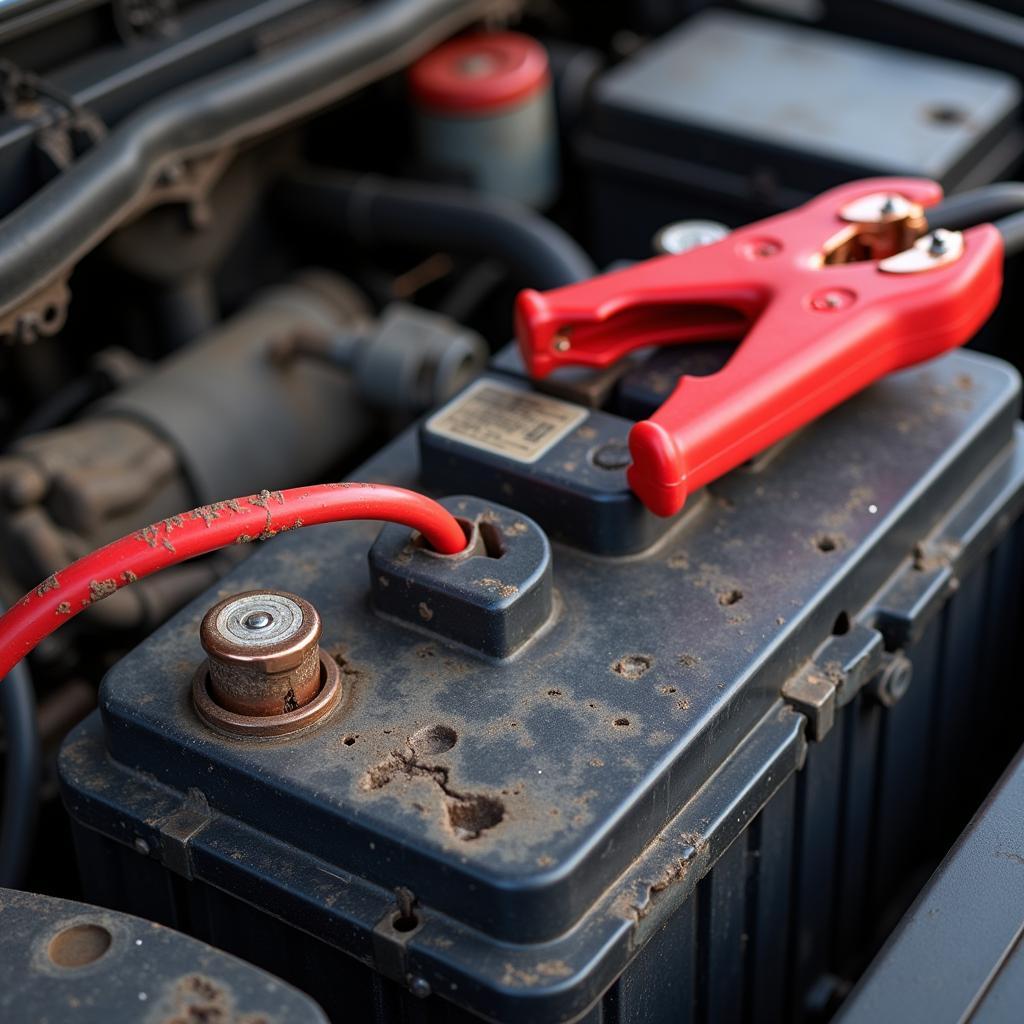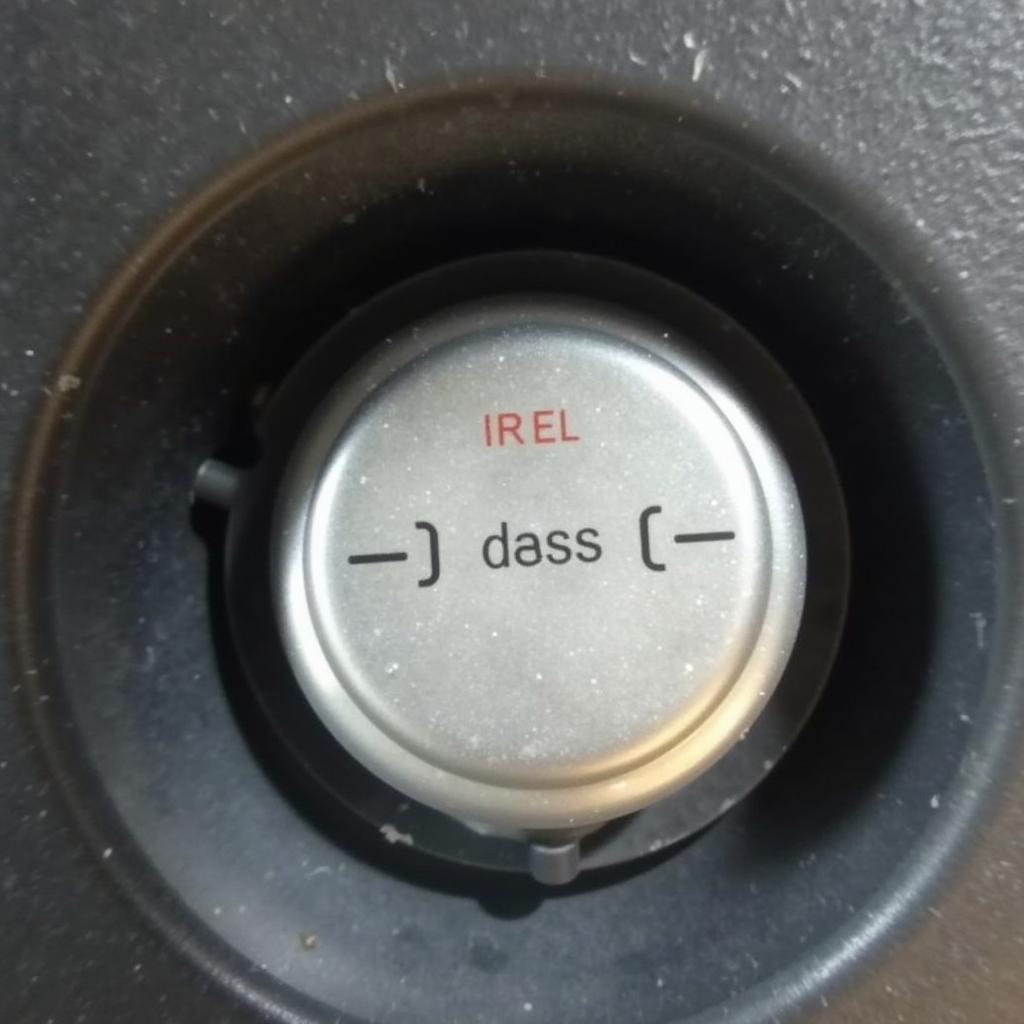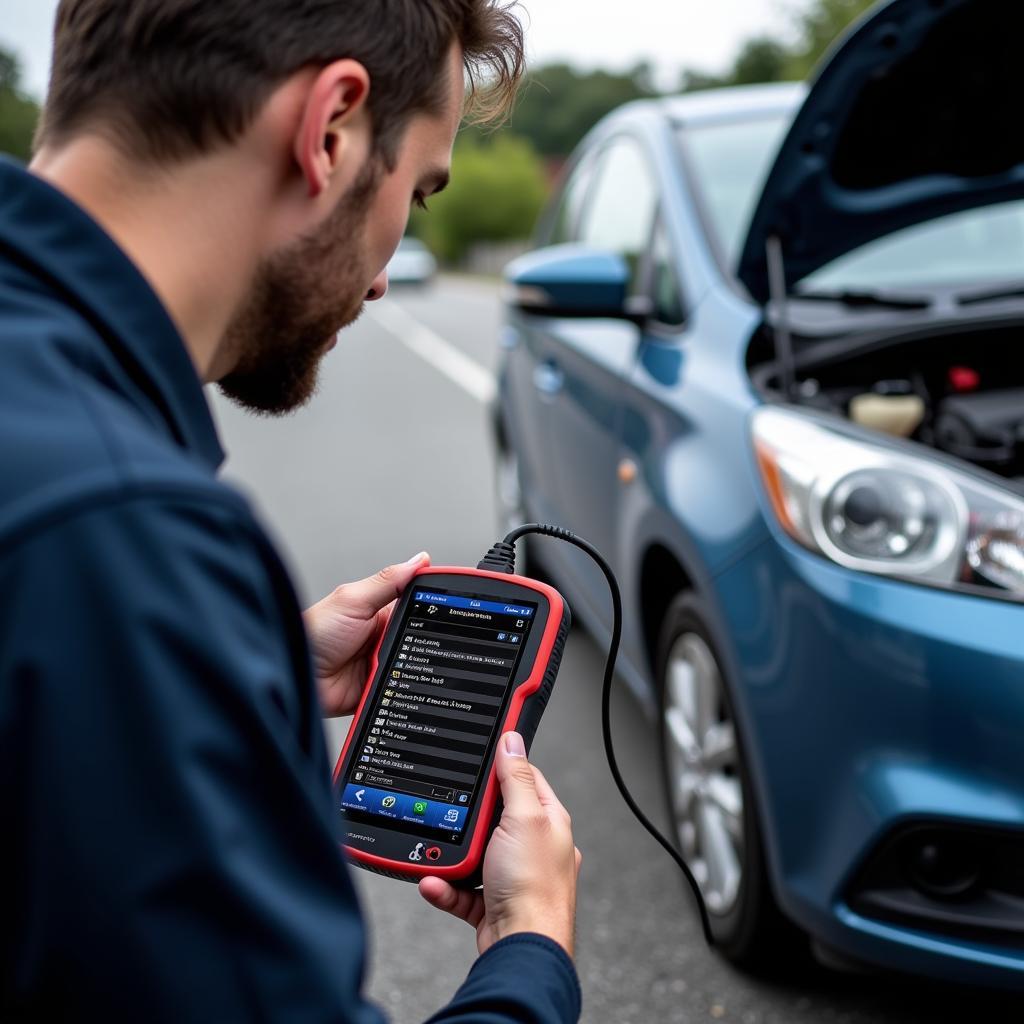Your car won’t start after a jump? It’s a frustrating situation, especially when you’re already running late. This article delves into the common reasons why your car might not start even after a jump start and provides solutions to get you back on the road. car not starting after jumping battery
Why is My Car Not Starting After a Jump?
Several issues can prevent your car from starting even after receiving a jump. Understanding the underlying cause is crucial for effective troubleshooting. These problems can range from a simple dead battery to more complex electrical faults.
Dead Battery: Beyond a Simple Jump
While a jump start can temporarily revive a dead battery, it won’t fix the underlying problem. If your battery is old or damaged, it may no longer hold a charge, rendering the jump start ineffective. You’ll need to car battery not starting after jump test the battery or even replace it.
 Dead Car Battery After Jump Start
Dead Car Battery After Jump Start
Faulty Alternator
The alternator is responsible for recharging the battery while the engine is running. A malfunctioning alternator won’t recharge the battery, even after a jump start, leading to a repeated starting issue.
Starter Motor Problems
The starter motor cranks the engine to initiate the combustion process. A faulty starter motor might click but not engage the engine, even with a jump start. This is often indicated by a clicking sound when you turn the key.
Loose or Corroded Battery Connections
Loose or corroded battery terminals can disrupt the flow of electricity, preventing the car from starting even after a jump start. Cleaning the terminals and ensuring a tight connection can sometimes solve this problem. This is especially important after jump starting your car.
Blown Fuse
A blown fuse in the starting circuit can interrupt the power supply to the starter, preventing the car from starting. Checking and replacing any blown fuses related to the starting system is a necessary step in troubleshooting. A simple fuse can be the difference between getting on the road and being stranded.
Ignition System Issues
Problems with the ignition system, such as a faulty ignition switch, coil, or distributor, can prevent the spark plugs from firing, hindering the engine from starting. This is a more complex issue requiring professional diagnostics.
What to Do When Your Car Won’t Start After a Jump
If your car car wont start even with a jump doesn’t start after a jump, follow these steps:
- Check the Battery Connections: Ensure the battery terminals are clean and tightly connected.
- Inspect the Fuses: Check the fuses related to the starting system and replace any blown fuses.
- Test the Battery: Use a multimeter or battery tester to check the battery’s voltage and ensure it’s holding a charge.
- Check the Alternator: Have the alternator tested to ensure it’s functioning correctly.
- Inspect the Starter: Listen for a clicking sound when turning the key, which may indicate a faulty starter motor.
“A simple multimeter can save you a lot of time and money when diagnosing car starting problems,” says automotive expert, David Miller.
If you’ve checked all these components and your car still won’t start, it’s best to consult a qualified mechanic or auto technician for a professional diagnosis.
“Remember, a jump start is a temporary fix, not a permanent solution,” adds Miller. “Addressing the underlying cause is critical to avoid recurring starting issues.”
Conclusion
A car not starting after a jump can be caused by various factors, ranging from a dead battery to more complex electrical issues. While a jump start might get you going temporarily, it’s important to address the underlying problem to avoid future issues. new car battery keeps going flat By systematically checking the battery, alternator, starter, fuses, and connections, you can often pinpoint the cause and take appropriate action. If you’re unsure, seeking professional help is always a good idea.
FAQ
- Can a jump start damage my car? Yes, improper jump starting can damage your car’s electrical system. Always follow the correct procedure.
- How long should a car battery last? Typically, a car battery lasts between 3 to 5 years.
- What are the signs of a bad alternator? Dim headlights, flickering dashboard lights, and a dead battery are common signs of a failing alternator.
- How much does it cost to replace a starter motor? The cost varies depending on the car make and model but typically ranges from $200 to $500.
- What are the signs of a bad starter? Clicking sounds when turning the key, intermittent starting problems, and a complete failure to start are signs of a bad starter. car battery discharge causes
- Can I drive with a bad alternator? You can drive for a short distance, but the battery will eventually drain, causing the car to stall.
- How can I prevent my car battery from going dead? Avoid leaving lights on when the engine is off, ensure the alternator is functioning correctly, and park in a garage or covered area during extreme temperatures.



